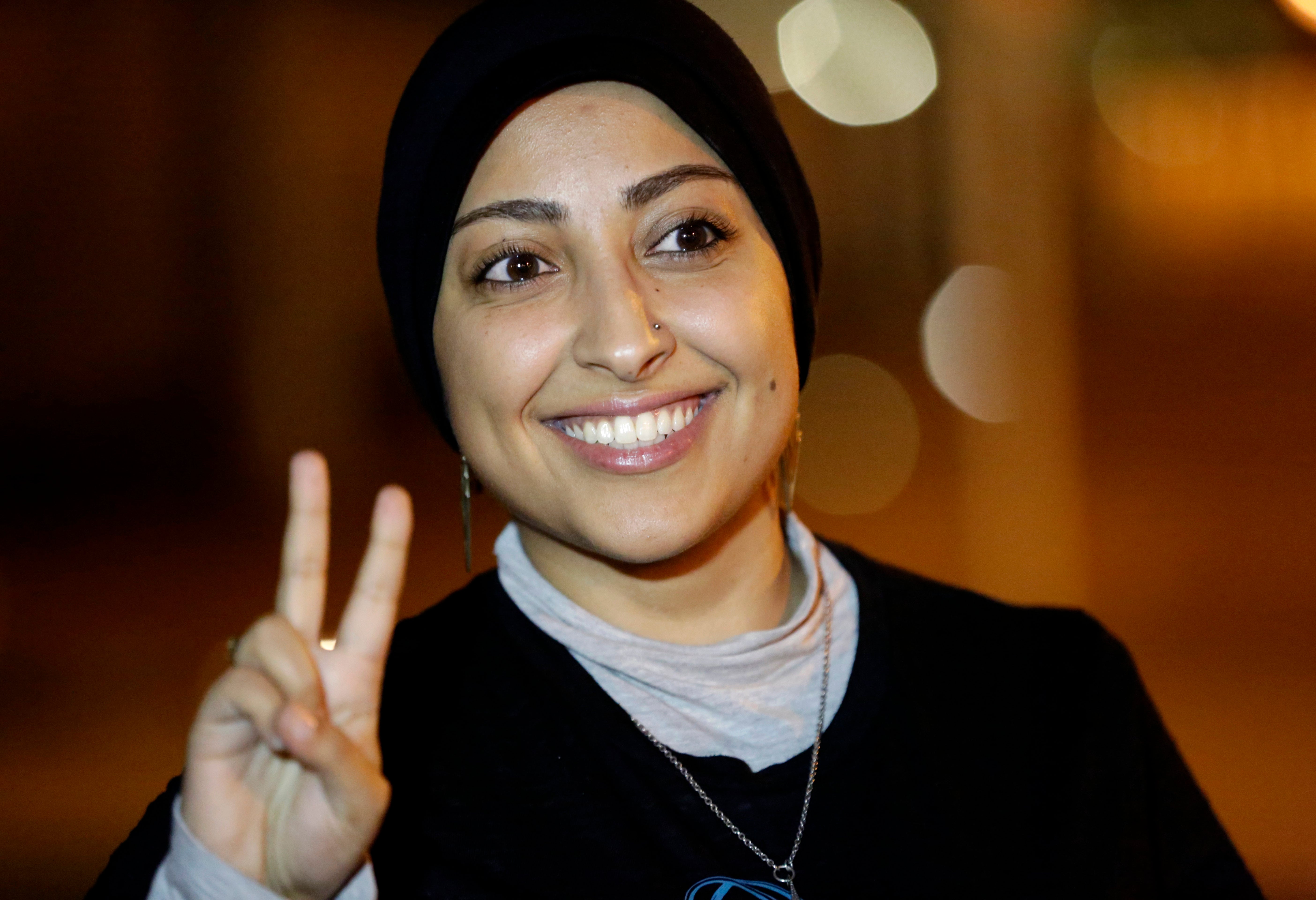Daughter of long-detained activist in Bahrain prepares to travel to island kingdom on Friday
A daughter of a long-detained human rights activist in Bahrain plans to return to the island kingdom Friday to press for the release of her father, even as she faces imprisonment herself

A daughter of a long-detained human rights activist in Bahrain plans to return to the island kingdom Friday to press for the release of her father, even as she faces imprisonment herself.
Maryam al-Khawaja will be accompanied by a phalanx of other activists including the secretary-general of Amnesty International, Agnès Callamard, seeking to prevent authorities from immediately detaining her.
Her trip comes as her father, 62-year-old Abdulhadi al-Khawaja, has resumed a hunger strike to protest the conditions of his yearslong imprisonment on internationally criticized charges stemming from him leading 2011 Arab Spring demonstrations in Bahrain. The trip also renews pressure on Denmark, where both al-Khawajas have citizenship, and the U.S., which signed a new defense understanding with Bahrain this week during a trip to Washington by its crown prince.
“So I'm on my way,” Maryam al-Khawaja said in a video posted online. “I want to thank the people who have decided to come with me on this trip.”
Bahrain's government did not respond to a request for comment about al-Khawaja's trip but has insisted her father has received proper medical care in custody.
In the last month, hundreds of prisoners at the Jaw Rehabilitation and Reform Center in Bahrain, which also holds Abdulhadi al-Khawaja, undertook a hunger strike to protest the conditions of their detention.
It marked one of the largest demonstrations to target Bahrain's Al Khalifa royal family in the decade since they, along with Saudi Arabia and the United Arab Emirates, violently put down the Arab Spring protests. The Sunni Al Khalifa family has ruled over the majority Shiite island in the Persian Gulf since 1783.
The prisoners suspended their hunger strike during this week's visit to Washington by Crown Prince Salman bin Hamad Al Khalifa, though al-Khawaja resumed his over his access to health care ahead of his daughter's trip.
It remains unclear what will happen to Maryam al-Khawaja if she arrives in Bahrain. She faces a variety of charges still on the island, including what she described as unclear terrorism charges that could carry a life sentence.
During Prince Salman's trip to Washington, he signed a new defense and technology agreement with U.S. Secretary of State Antony Blinken. He also met U.S. Defense Secretary Lloyd Austin.
Bahrain, considered by the U.S. to be a major non-NATO ally, hosts the U.S. Navy's Mideast-based 5th Fleet, which patrols the region's waterways and often has tense encounters with Iran. Bahrain also diplomatically has recognized Israel in recent years.
The new U.S.-Bahrain agreement, which was reached without going to Congress and becoming a formal treaty, calls for the two countries to meet and plan responses to “any external aggression or threat of external aggression.” Bahrain long has had tense relations with Iran, which even under the shah sought to claim the island.
“The strengthened rhetoric about Washington’s response to an attack on Bahrain will likely help Manama feel more assured, especially when it comes to Bahraini concerns over Iran and its intentions toward Bahrain,” an analysis from the Eurasia Group said. “However, beyond strengthened security rhetoric, the agreement does not appear to offer Bahrain many tangible new security or economic benefits.”
But human rights issues remain just under the surface. On Thursday, State Department spokesperson Matthew Miller acknowledged Blinken brought up al-Khawaja's case and others in his meeting with Prince Salman.
“He raised human rights concerns and made clear that human rights are a pillar of our policy across the Middle East and North Africa,” Miller said.
He added: “As is true with a number of countries, we have the ability to work together on things where we can advance cooperation but still raise where we have concerns.”
___
Associated Press writer Matthew Lee in Washington contributed to this report.
Bookmark popover
Removed from bookmarks